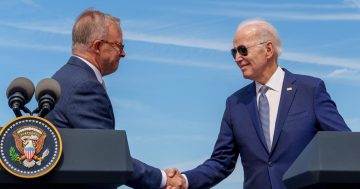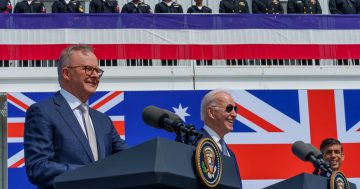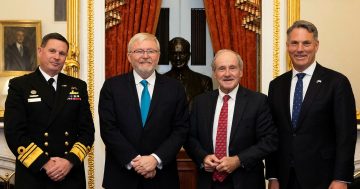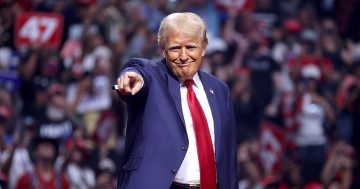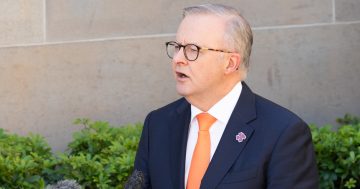Amy Mackinnon and Colm Quinn* believe the election of US President Joe Biden means Ireland will have a sympathetic ear in the White House — but the new ‘special relationship’ has its limits.
 It’s been 170 years since United States President-elect, Joe Biden’s great-great grandfather, Patrick Blewitt, fled the Irish potato famine and settled in Scranton, Pennsylvania.
It’s been 170 years since United States President-elect, Joe Biden’s great-great grandfather, Patrick Blewitt, fled the Irish potato famine and settled in Scranton, Pennsylvania.
Biden’s Irish roots and Catholic faith are a cornerstone of his self-identity.
His embrace of the Emerald Isle is setting nerves on edge in London that Brexit Britain could find the special relationship with the United States a little less special.
Former leader of the United Kingdom Independence Party, Nigel Farage says Biden “hates the UK” after a video clip surfaced of Biden rebuffing a question from a BBC journalist by saying: “I’m Irish.”
UK Prime Minister, Boris Johnson’s advisers were, according to the New York Times, concerned that the British leader’s warm relationship with outgoing President, Donald Trump could put him on the back foot with Biden.
While Trump was vocal in his support of Britain’s withdrawal from the European Union, Biden has long made known his distaste for the move — and for Johnson.
Speaking at a fundraiser last year, Biden described the Prime Minister as a “physical and emotional clone” of Trump.
Biden has made clear where his red line is with London, and it runs through the island of Ireland.
On the campaign trail, he said that any future trade deal between the UK and the US would be contingent on London’s respect for the 1998 Good Friday Agreement, which ended decades of conflict in Northern Ireland.
The US-brokered agreement did away with the hard border between Northern Ireland, part of the UK, and the Republic of Ireland, which is a member of the European Union.
However, the Irish border has become a major sticking point in Brexit negotiations. The UK Government recently reneged on an agreement with Brussels to respect the open border, raising fears of a return to a hard border and possibly renewed conflict.
Biden raised the issue with Johnson in his first chat with an overseas leader as President-elect.
Anne Anderson, who served as Irish Ambassador to the United States during the Barack Obama Administration, when Biden served as Vice President, believes Biden’s understanding and instincts will stem specifically from his identification as Irish and Irish American.
“He’s visited Ireland, he knows these issues backward, and we don’t need to educate him in any way about the Good Friday Agreement and its importance to the north-south relationship on the island,” Anderson said.
Even though Biden and Democrats in Congress are expected to toe a hard line on Brexit and the Irish border, experts and former Irish and American diplomats, say that any concerns about favouritism are overblown.
While Biden’s priorities may align closely with Dublin’s, it mostly has to do with a shared world-view, rather than heritage.
Biden’s known opposition to Brexit doesn’t necessarily have to derail the decades-old close relationship with London, even as Johnson’s big election win last year has turbocharged die-hard Brexiteers who were more comfortable with Trump in office.
Kevin O’Malley, who served as US Ambassador to Ireland during the Obama Administration, doesn’t think the President-elect will hold it against the UK.
“They had an election, they voted, that’s what they decided, and we’ll deal with it,” O’Malley said.
Ireland, which has been actively trying to mediate between the UK and the rest of Europe as Brexit reaches its end game, is diplomatically punching well above the weight its five million population would suggest.
Earlier this year, the Economist wrote that Ireland has “a good claim to be the world’s most diplomatically powerful country” on a per capita basis.
Ireland has an embassy in every EU country, and the Irish government is one of the biggest spenders in Washington when it comes to foreign lobbying.
In June, Ireland beat Canada to secure a seat on the United Nations Security Council. In July, Ireland’s Finance Minister, Paschal Donohoe clinched the leadership of the Eurogroup, a club of Eurozone Ministers of Finance.
Still, Irish eyes might not be smiling forever. Speaker of the House of Representatives, Nancy Pelosi and Chair of the House Ways and Means Committee, Richard Neal, have been vocal in their support of Ireland’s border stance, but neither is getting any younger.
Even with backers still in power, Ireland’s diplomatic clout in Washington has its limits.
At Ireland’s Embassy in Washington, Ambassador, Daniel Mulhall is cautiously optimistic about Ireland’s prospects.
“It’s a good thing that we will have a President who has this kind of depth of understanding of Irish affairs, which is bound to be beneficial to us,” Mulhall said.
“Not that I’m expecting any great bonanza. I’m clear about that.”
*Amy Mackinnon and Colm Quinn are staff writers at Foreign Policy Magazine.
A fuller version of this article appears on the Foreign Policy website.


